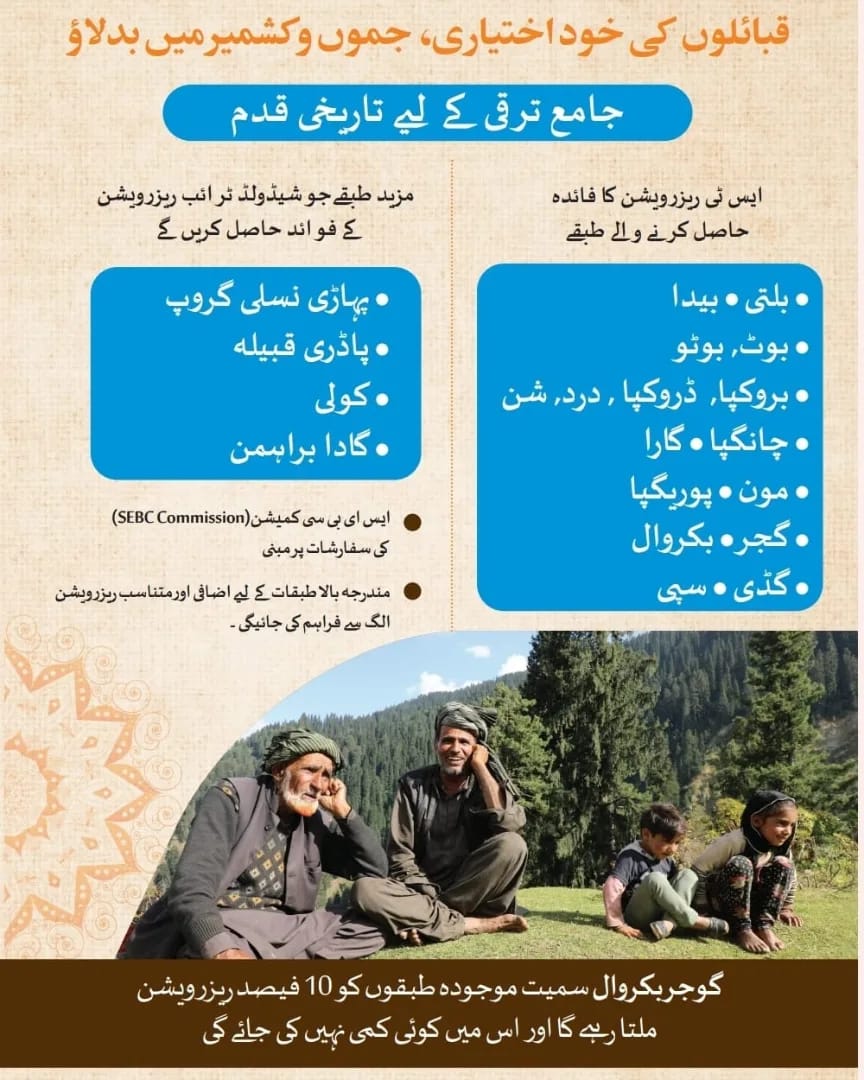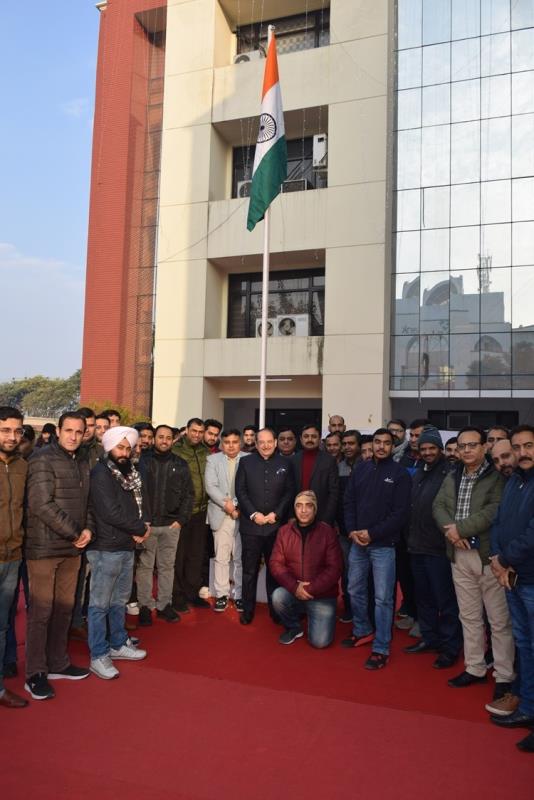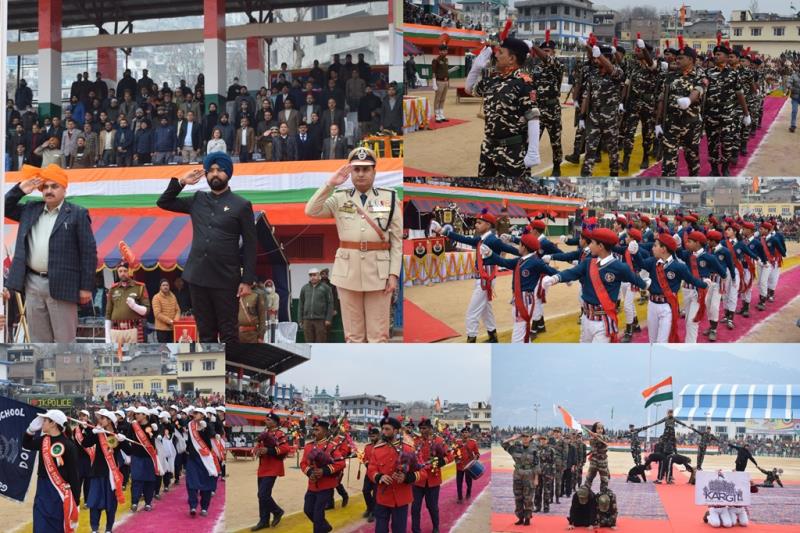MANY in the Kashmir Valley, Kargil, Pir Panjal, and the valley of Chenab are deliberating upon the pros and cons of the Gupkar Declaration (GD) 2.0.
To make any impact on Kashmir’s slippery political landscape, the political document agreed upon between the various ideological shades in the restive region’s unionist camp has to move beyond the act of issuing the craftily-worded statements alone.
It is still unclear what plan B is.
As far as the unionist camp is concerned, there is no clarity on the path ahead. There is also ambiguity how the six parties that forged a partnership of sorts, which some of them refer to as “Mahagathbandan”, will fight for the collective political and human rights of the people of Jammu and Kashmir in the absence of a robust roadmap and a visible structure to their political resilience.
That said, some political scientists and Kashmir watchers are of the view that keeping in view the deafening silence since August 5 last year and silencing of the politicians, people and the pulpit, the mere coming together of six political outfits is a small progress. They feel that at least the politicians have started talking politics. They have moved beyond the act of talking at each other and have chosen to talk to each other. Their declaration is indeed a baby step, but a progress nevertheless.
The important component of the much talked about Gupkar Declaration signed by six political parties from the unionist camp is their ‘pledge’ that their political activities will remain “subservient to the sacred goal of reverting to the status of J&K (Jammu and Kashmir) as it existed on 4th August, 2019.” Another significant phrase in the joint-resolution is: “nothing about us without us”.
“We want to assure the people that all our political activities will be subservient to the sacred goal of reverting to the status of J&K as it existed on 4th August 2019,” the GD 2.0 said.
There are two ways of looking at the GD.
One, that the position taken by the six parties is a huge climb-down from their earlier Kashmir stances. For instance, the region’s oldest political formation, National Conference (NC), strives for regional autonomy within the ambit of Indian Constitution and seeks to reverse the clock backwards to pre-1953 status. The People’s Democratic Party (PDP) demands Self-Rule and joint mechanism in both parts of Kashmir divided between India and Pakistan by a Line of Control (LoC) since the last seven decades.
Two, what is the mandate of the unionist camp and how far they can go while believing in electoral politics? Can they cross a red line drawn for them in New Delhi?
In a hotly contested territory the contents of the Gupkar Declaration can be hailed or severely criticized, depending upon which sides of the ideological fence one belongs to. In the eyes of the common people, the unionist camp is essentially responsible for Kashmir’s many ills. They are seen by many as “collaborators” and “enablers” of the Kashmir policy as far as the current dispensation in Delhi is concerned.
Therefore, the peoples’ anger is directed at both the National Conference (NC) and the People’s Democratic Party (PDP). The latter is accused of entering into an “unholy alliance” with the saffron party and of committing a “political suicide” twice within a period of less than two years; first in early 2015 and then again in early 2016 after the demise of former Chief Minister and PDP patron, Mufti Mohammad Sayeed.
Besides the perceived assaults on the very identity, dignity and existence of the people of Kashmir, there are deep anxieties in the region with regards to the demographic character as well. People also fear that apart from altering the demographic character of J&K there is an attempt being made to shift the political centre from the Kashmir Valley to Jammu.
In such a grim scenario, the unionist camp has to move beyond rhetoric and politics designed to reap electoral benefits. It has to cross the red line and start talking about issues which need to be spoken about without political correctness and ambiguity of any sort. The assault is on Kashmir and therefore the political assertion should reflect Kashmir and safeguard Kashmir’s interests.
When the architect of the assault identifies you by your “clothes” and “faith”, you can’t act as a flightless bird, an Ostrich, bury your head in sand, and claim that the assault is ‘secular’ in nature. Expecting different results by following the same old technique would be stupidity of the highest order. Assertion of Kashmiri Muslim identity is not being radical. It is being pragmatic.
For their own relevance, all the unionist parties have to rise above their petty electoral interest and stand united in their resolve to protect and defend the identity and existence of the people against all attacks and onslaughts.
It is true that, in a first, the four unionist parties in Jammu and Kashmir along with Pradesh Congress Committee (JKPCC) and Communist Party of India (Marxist) on August 22 joined hands together in Srinagar to unanimously reject the Bharatiya Janata Party (BJP)’s “unilateral and unconstitutional” decision that resulted in abrogation of Articles 370 and 35-A of Indian Constitution and downgrading of the restive region into two federally-administered territories.
The BJP-led National Democratic Alliance (NDA) took a surprising decision to revoke J&K’s autonomy and statehood on August 5 last year.
Top leaders of NC, PDP, J&K People’s Conference (PC), J&K Awami National Conference (ANC), JKPCC and CPI (M) unanimously described the events of August 5, 2019 as “unfortunate” and said these, “have unrecognizably changed the relationship between Jammu & Kashmir and New Delhi.”
Invoking the Gupkar Declaration 1.0 of August 4, 2019, the signatories reiterated that “we are bound, wholly, by the contents of the GUPKAR DECLARATION and will unwaveringly adhere to it. We are committed to strive for the restoration of Articles 370 and 35A, the Constitution of J&K and the restoration of the State and any division of the State is unacceptable to us. We unanimously reiterate that there can be “nothing about us without us”.”
The joint statement was signed by the two former Chief Ministers Farooq Abdullah and Mehbooba Mufti, and other unionists like Sajad Lone, Muzaffar Shah, Ghulam Ahmad Mir and Mohammad Yusuf Tarigami.
One of the biggest factors that led to this rare show of unity among the unionists is the anger of the dispossessed (Kashmiris). Unionists realise that they are at the precipice of complete irrelevance if they reconcile with the August 5 decision. Many former legislators candidly acknowledge that the new generation of Kashmir is politically conscious, educated, articulate, aspirational and believe in concrete action, not political rhetoric, verbal gymnastics or political posturing.
Unionists will tick another box if they move beyond the act of issuing statements to give the Gupkar Declaration a definite shape and structure, walk the talk and be unambiguous about the path ahead even if it means choosing the path of suffering and sacrifice!





